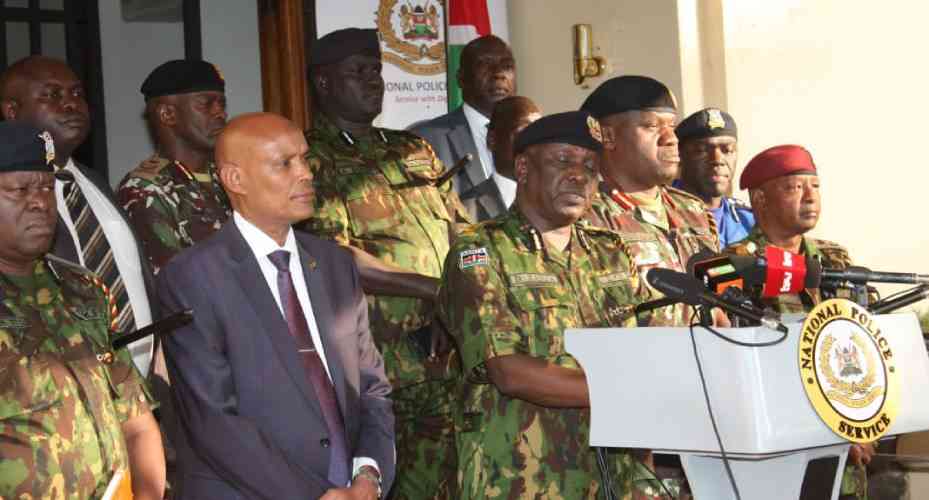Ibas alleges sabotage at budget defence as Senate reiterates democratic rule
In a high-stakes session at the National Assembly, the Senate’s Ad Hoc Committee on Emergency Rule Oversight commenced detailed scrutiny of the proposed N1.846 trillion 2025 budget for Rivers State, the largest in the state’s history and an 86.6 per cent increase over last year’s appropriation.
The session marked the most consequential phase of federal oversight since emergency rule was declared in the state by President Bola Tinubu early this year.
The Sole Administrator of Rivers State, Vice Admiral Ibok-Ete Ekwe Ibas on Thursday disclosed that some officials of the state government withheld critical financial records needed to capture the expenditures incurred by the state in the first quarter of 2025.
However, the Leader of the Senate and Chairman, Senate Ad-hoc Committee on Oversight of Emergency Rule in Rivers State, Senator Opeyemi Bamidele observed that emergency rule “is not a replacement for democratic government, but an extraordinary measure to ensure peace and security in Rivers State.”
Ibas said: “This is not business as usual. This is a transitional moment that demands bold action. The 2025 budget is crafted to address insecurity, mend broken systems, and lay the groundwork for peace and inclusive growth.”
The Sole Administrator explained that the original budget framework, 85 per cent of which was inherited from the previous administration, was revised upward by about 15 per cent to address three critical areas.
Bamidele, therefore, noted that the Authority of the Senate also mandated the ad-hoc committee mandate “to track how allocated resources in the budget would be utilised for the benefits of people of Rivers state.
“As representatives of the people, we are not only tasked with evaluating figures but also with ensuring the faithful budget execution. It is our mandate to track how allocated resources are utilised project-by-project, sector-by-sector to guarantee transparency and uphold accountability in the use of public funds.
“This means that our engagement today on the Rivers State 2025 Appropriation Bill does not end here. We shall, in the coming months, assess the performance of the budget by closely monitoring disbursements, execution timelines, and delivery”.
“Our objective is to ensure that approved funds translate into meaningful development and that deviations or delays are addressed promptly in the overriding public interest.
“Beyond the numbers, we must also evaluate the real-world impact of this budget on the everyday lives of the people of Rivers State. In times of political uncertainty and emergency governance, government actions must not only be lawful, but also people-centred.
“We must ask: will this budget deliver proven roads, healthcare, education, safety, and livelihoods for the people? This, ultimately, is how we build trust in government and public institutions like ours.
“When citizens can feel the dividends of democracy when allocations on paper become tangible solutions on the ground. Their faith in governance is renewed. It is this trust we must work to restore and strengthen through our recommendations and sustained legislative vigilance,” the chairman of the ad-hoc committee explained.
HOWEVER, three months after the declaration of a State of Emergency in Rivers State, residents, including experts, have decried multiple taxation and a poor economy.
They lamented that the emergency regime is not achieving the purpose it was intended, expressing worry about the worsening economic decline and fragile peace in the state.
On March 18 this year, President Bola Tinubu declared a State of Emergency in Rivers State and suspended Governor Siminalayi Fubara, his Deputy, Prof. Ngozi Odu, and the members of the state Assembly, following the lingering political crisis in the state.
The President further appointed a Sole Administrator, retired Vice Admiral Ibok Ete Ibas, to lead the state, saying he was greatly disturbed by the unabated crisis in the state, and expressing hope that his action would restore peace and stability in the state. The Senate, on March 20, approved the President’s imposition of a State of Emergency after a closed-door meeting with lawmakers.
However, three months later, the residents have lamented low business. Traders in Mike One, Mike Three and other markets in the state have raised the alarm over low patronage.
Also, business owners decried being subjected to multiple taxations with no monitoring by anyone. Findings show that various groups of tax collectors are now harassing business owners and traders across the state.









